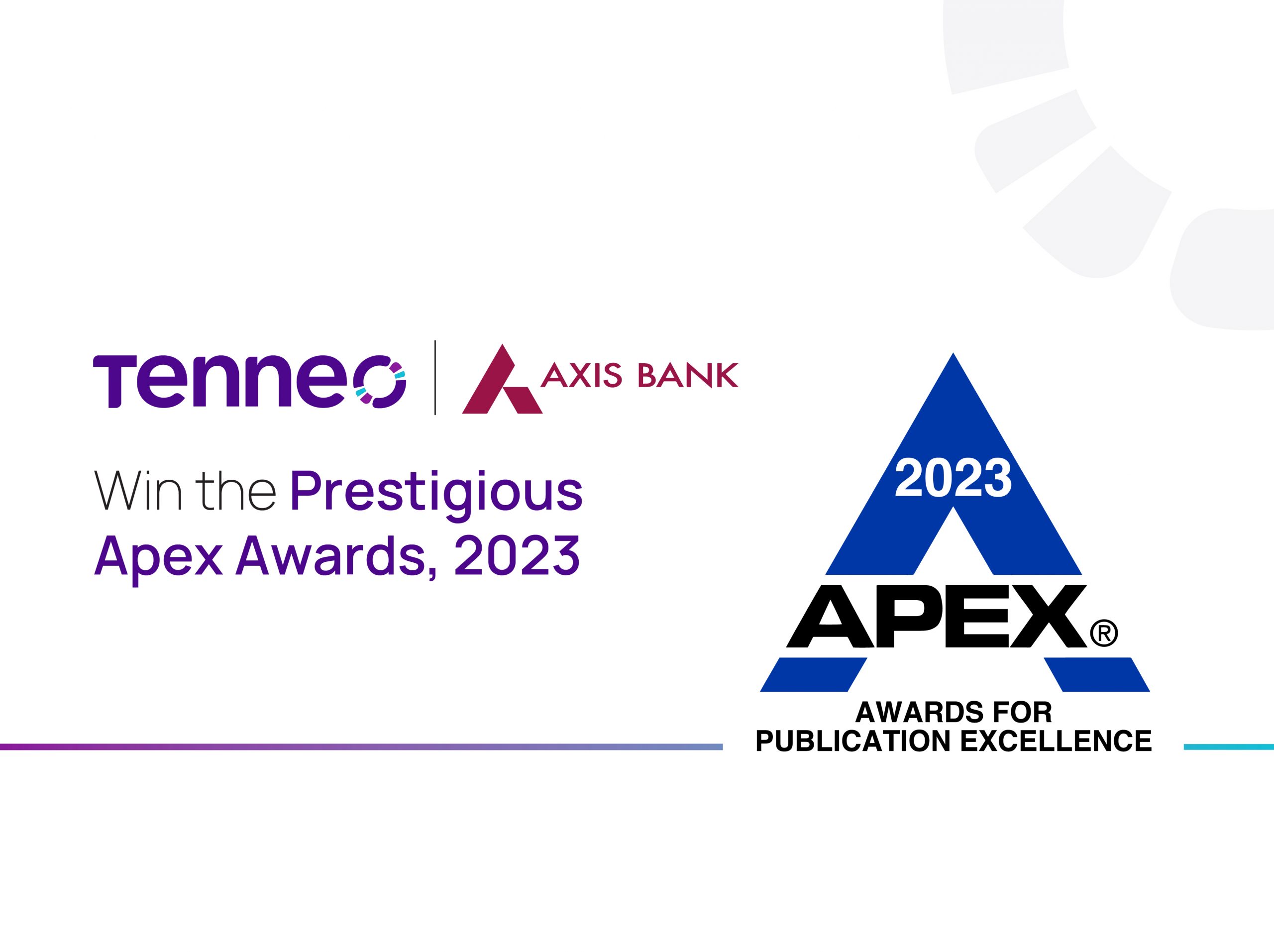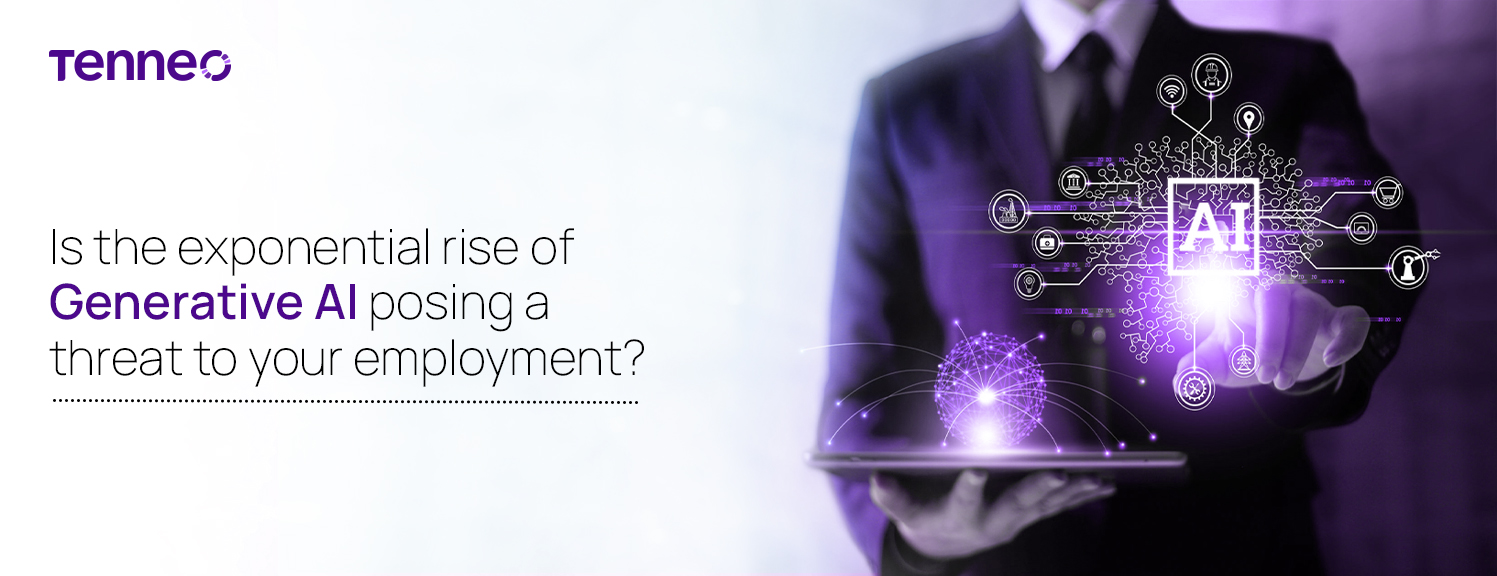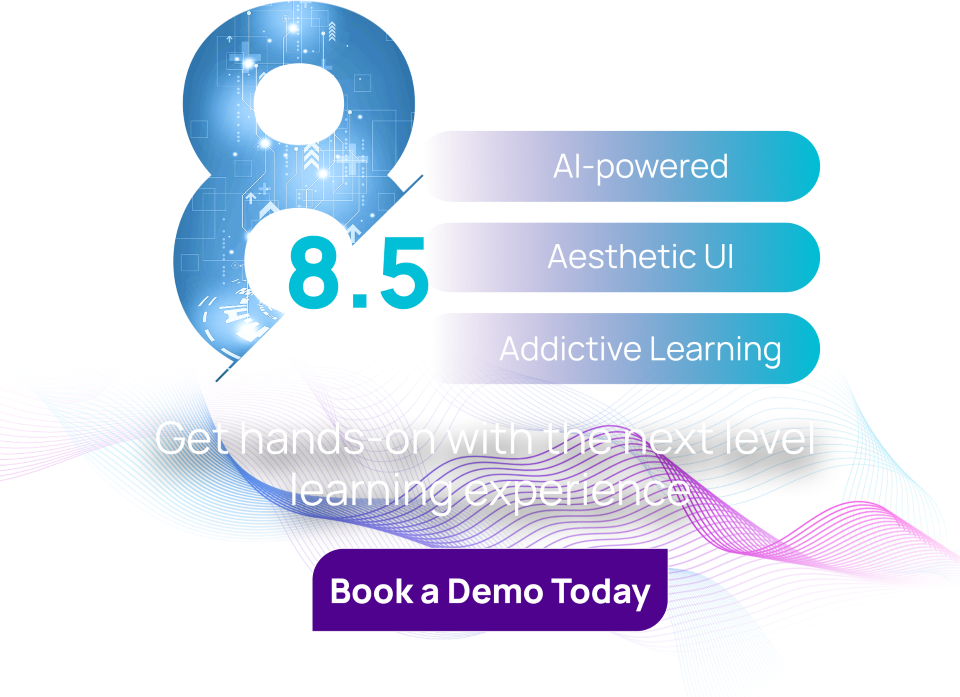
Tenneo Earns Accolades at the Apex Awards for Redefining Employee Learning
August 9, 2023
Unlock Learning Potential: Generative AI Prompt Writing for L&D Professionals
July 19, 2023
Tenneo Earns Accolades at the Apex Awards for Redefining Employee Learning
August 9, 2023
Unlock Learning Potential: Generative AI Prompt Writing for L&D Professionals
July 19, 2023Can Generative AI Replace L&D Professionals?

In today's fast-paced and technology-driven world, the emergence of Generative AI has sparked discussions about its potential to revolutionize various industries, including employee Learning and Development (L&D). Many professionals are pondering whether the exponential rise of Generative AI is posing a threat to their employment.
The emergence of Generative AI has proved to be of great importance for L&D professionals. It has helped them to enhance various aspects of their job responsibilities. However, it is unlikely that AI will replace L&D professionals completely. This blog explores the areas where AI can assist L&D professionals along with the areas where they will solely continue to play a crucial role.
How Generative AI can Assist L&D Professionals
- Content Curation and Learning Interventions
L&D professionals can leverage Generative AI to curate relevant and high-quality content libraries, saving time and effort in manually searching and organizing resources. Generative AI can analyze huge volumes of learning content, including articles, videos, and courses, and provide personalized recommendations to learners based on their preferences, learning styles, and progress.
- Automated Assessments and Feedback
AI-powered algorithms can efficiently analyze and evaluate learner performance, providing immediate and objective feedback. L&D professionals can utilize Generative AI algorithms to automatically grade assignments, quizzes, and assessments. This automation enables learners to receive timely and personalized feedback, allowing them to track their progress and identify areas for improvement.
- Simulations and Virtual Training
AI algorithms can create realistic and immersive virtual environments that simulate real-world scenarios. These simulations can provide learners with a safe space to practice and apply their skills, allowing them to develop confidence and competence in a risk-free setting. AI can enhance the interactivity and responsiveness of these simulations, adapting the scenarios based on learner actions and providing real-time feedback.
- Language Translation and Localization
In global organizations with diverse workforces, generative AI can assist L&D professionals in translating and localizing learning materials into multiple languages. AI-powered translation algorithms can quickly and accurately translate content from one language to another, reducing the time and effort required for manual translation. Moreover, Generative AI can also assist in the localization of learning content by adapting it to specific cultural and regional contexts.
- Continuous Learning Support
Generative AI can provide just-in-time learning support to employees, enabling them to access relevant information and resources when they need them. L&D professionals can integrate Generative AI-powered chatbots into learning management systems to support learners whenever they need any assistance. This fosters a culture of continuous learning and engagement.
Why L&D Professionals will Continue to Play a Crucial Role
- Contextual Understanding
One of the key strengths of human L&D professionals is their contextual understanding. They possess the ability to grasp the unique needs, challenges, and nuances of a specific organization or industry. They have a deeper understanding of organizational goals and culture. While AI can analyze large volumes of data and provide general recommendations, it lacks the ability to deeply understand the intricacies and dynamics of organizational context.
L&D professionals, on the other hand, can leverage their experience, expertise, and interpersonal skills to gather insights through observation, interviews, and discussions with stakeholders. This contextual understanding is difficult for AI to replicate.
- Emotional Intelligence
L&D professionals often work closely with learners, providing guidance, support, and motivation. They possess emotional intelligence and interpersonal skills that allow them to connect with learners on a deeper level. AI lacks the ability to completely empathize with learners and provide the same level of human interaction and emotional support.
This skill is particularly valuable in the realm of learning and development, as it allows professionals to connect with learners on a deeper level and create a supportive and engaging learning environment.
- Adaptability and Creativity
Adaptability of human L&D professionals allows them to respond to changing needs, optimize learning experiences, and ensure ongoing improvement. Their creativity enables them to design engaging and innovative learning solutions that captivate learners. While AI can assist in data analysis and generate content, it often lacks the adaptability to respond to real-time changes and lacks the innate creativity to address problems that require human intuition and imagination.
- Facilitation and Collaboration
L&D professionals excel in facilitating group activities, discussions, and workshops. They can foster collaboration, encourage active participation, and manage group dynamics effectively. Their expertise in creating a sense of community and belongingness amongst the learning groups enhances the experience.
While Generative AI can provide information and resources, it lacks the ability to facilitate meaningful interactions and collaborative learning experiences. It struggles to replicate the interpersonal facilitation skills required for group learning experiences.
- Ethical considerations
Human professionals are equipped with ethical frameworks, values, and moral judgment that guide their decision-making in the learning and development process. They can navigate complex ethical dilemmas that may arise regarding security and data privacy.
In contrast, AI lacks human ethical judgment and may face challenges in making nuanced ethical decisions. The reliance solely on Generative AI in the learning and development field raises concerns about data privacy, algorithmic biases, and the potential for impersonal and unethical practices.
Conclusion
L&D professionals will continue to play a crucial role in improving employee learning programs and contributing to business growth. However, by harnessing the power of generative AI, they can further enhance their effectiveness and provide more personalized and impactful learning experiences. The collaboration between human professionals and AI will be the key to unlocking the full potential of L&D in the digital age.

